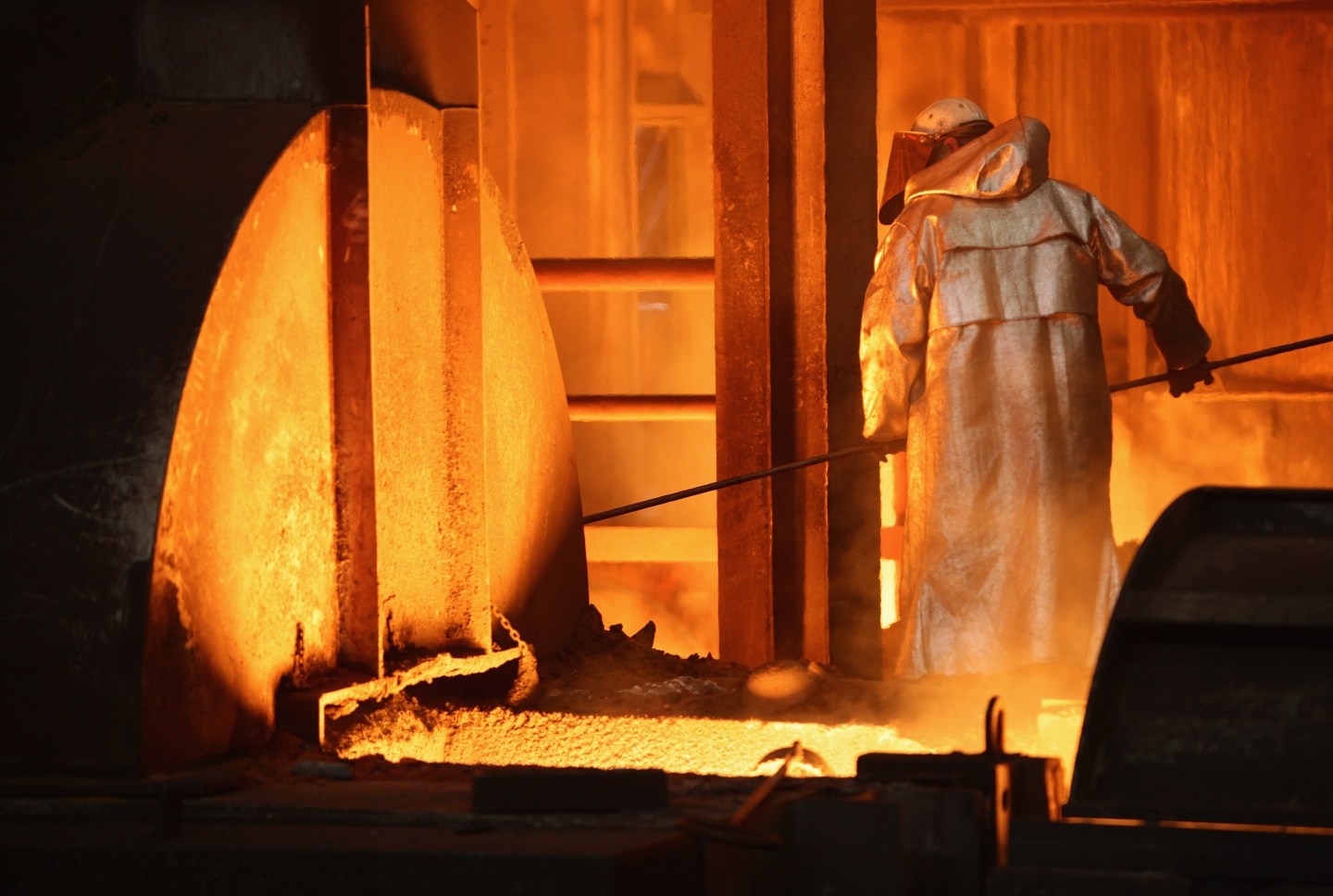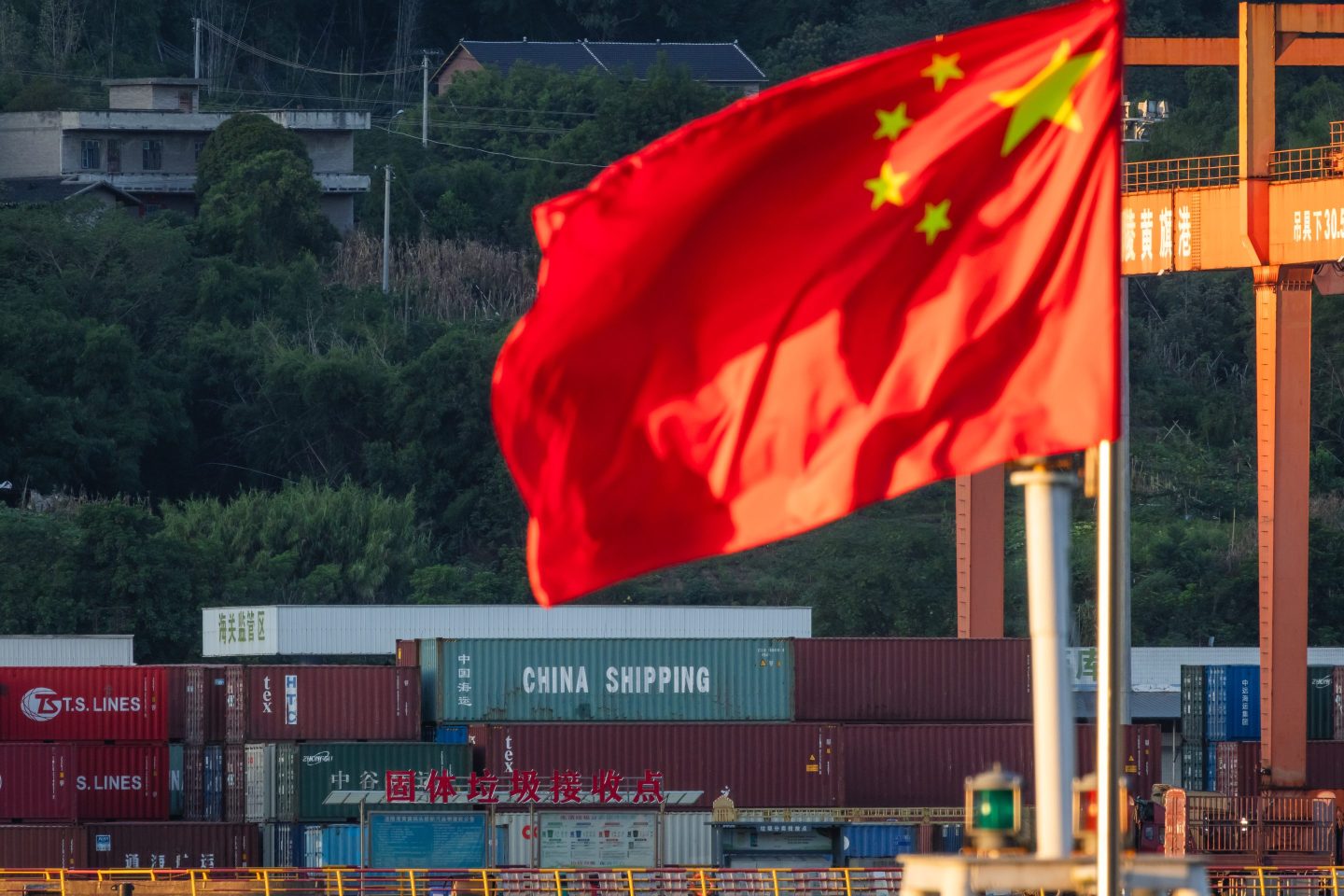Ground zero for rising prices, Europe may have reached an inflection point in its struggle to control spiraling inflation.
Germany, the continent’s largest economy, accounting for about a fifth of its overall gross domestic product, reported prices of industrial goods paid by producers dropped 4.2% from September to October after energy costs crashed.
“This was the first month-on-month decrease since May 2020,” the German statistics office reported on Monday. “Energy prices fell by an average 10.4%, which was mainly caused by the decrease of electricity and natural gas prices.”
Previously producer prices rose at a monthly rate of 2.3% in September and a staggering 7.9% in August, the highest increase since records began in 1949.
Companies are voracious consumers of raw materials, basic feedstocks, and other resources that range from crude oil to galvanized steel. Any higher costs are ultimately rolled over onto their middlemen and eventually downstream to the consumer whenever feasible in order to protect corporate profits. That makes producer prices a leading indicator of inflation.
As the continent’s manufacturing powerhouse, Germany has had to absorb the brunt of these soaring costs ever since Russia starved opponents of its war in Ukraine of natural gas.
Europe’s desperate search to secure alternative gas supplies to keep the lights on, literally, has led to the continent bidding up the global price of liquified natural gas. It has since paid top dollar for countries like the United States or Qatar to supply it with LNG.
In the warm summer months when demand in the Northern Hemisphere was seasonably low, EU officials scrambled to ensure its gas storage was full. By the end of August, when producer prices in Germany peaked, the economic bloc had already reached its 80% target for November.
Thanks to a record high temperature for October, demand came in substantially below forecast. That has meant the EU’s reserves are bursting at the seams, with storage capacities presently running at 95%.
This has caused the price for gas to tumble from their summer highs as the EU cannot soak up any more supply to hoard.
Inflation still above target
Still, annualized inflation figures will likely remain sky-high at least until March, because they’ll each be compared the previous year’s month before prices began to really soar following the start of Russia’s hostilities in Ukraine.
That explains why Germany’s producer prices rose at a rate of nearly 35% on a year-on-year basis last month, as the energy crunch also caused the cost for ammonia, a key raw material for fertilizer that is synthesized using natural gas, to nearly triple.
Adjusted for energy, producer prices were up 14% over last October and 0.4% over the previous month, according to its federal statistics office. Economists are therefore more closely watching month-on-month fluctuations.
Europe will publish an initial estimate of consumer price inflation for November at the end of the month. Since it will however take time before the impact of easing producer prices trickles down to average citizens, consumer prices continue to trend higher. October CPI hit a record 10.6% for the euro area on an annualized basis.
Earlier this month, the European Commission forecast that consumer prices in the 20 euro area countries sharing the single currency, including Croatia, which is set to join in January, will ease to 6.1% next year from an expected 8.5% in 2022. This is substantially higher than the 2% rate targeted by the European Central Bank over the medium term.
Our new weekly Impact Report newsletter will examine how ESG news and trends are shaping the roles and responsibilities of today's executives—and how they can best navigate those challenges. Subscribe here.













